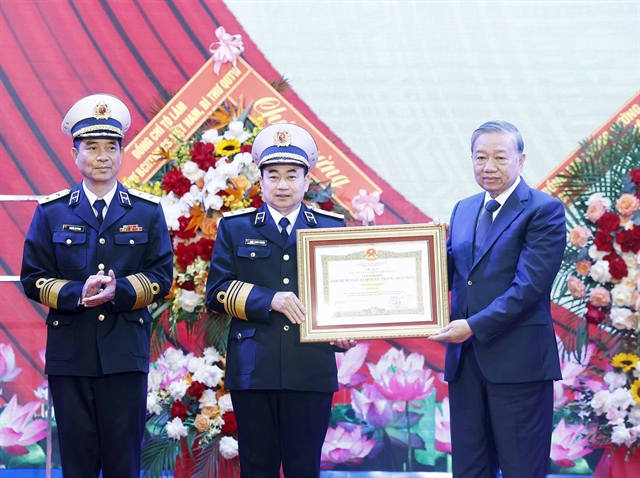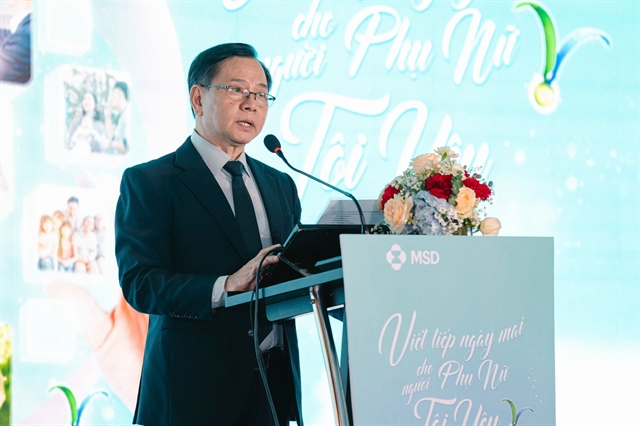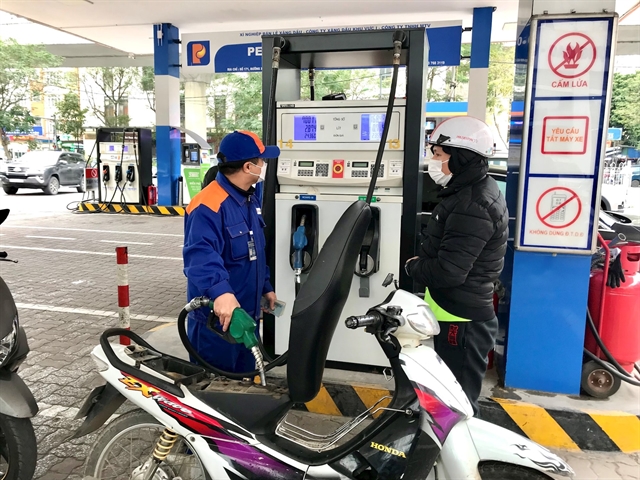 Society
Society

HCM CITY — The increasing importance of neoadjuvant therapy and experiences in treating early-stage triple-negative breast cancer were discussed at a scientific symposium titled “Advancing TNBC Treatment in the Era of Immunotherapy.”
Organised by MSD (known as Merck & Co., Inc., Rahway, NJ, USA, in the US and Canada), the symposium aims at improving the treatment outcomes and quality of life for breast cancer patients in Việt Nam, particularly those diagnosed with triple-negative breast cancer (TNBC).
The conference was held in Hà Nội, chaired by Associate Professor Dr Lê Thanh Đức, head of internal medicine department 5 at K Hospital.
A day earlier the HCM City session was led by Dr Diệp Bảo Tuấn, director of the HCM City Oncology Hospital.
 |
| During the symposium, physicians emphasise the increasing importance of neoadjuvant therapy in early-stage triple-negative breast cancer. — Photo Anh Vũ |
The symposium proudly welcomed esteemed national and international experts from K Hospital, Hanoi Oncology Hospital, HCM City Oncology Hospital, Chợ Rẫy Hospital, and other top cancer centers across Asia, such as Yang Ming University and Sengkang General Hospital.
According to Globocan 2023, breast cancer accounts for approximately 24,563 new cases in the country annually, or 28.9 per cent of all cancers afflicting women.
TNBC comprises 10 – 15 per cent and is associated with worse prognosis compared to other subtypes, regardless of stage.
Every year thousands of Vietnamese women succumb to TNBC. Their passing is not only a personal loss but also a profound emotional void for their families, where women often serve as the anchor of love and connection.
Triple-negative breast cancer is a distinct subtype characterised by the absence of the three most common breast cancer receptors which are estrogen receptor - ER, progesterone receptor - PR and human epidermal growth factor receptor 2 - HER2.
The absence of these receptors makes TNBC more challenging to treat, as hormone therapies and HER2-targeted therapies are ineffective.
Associate Professor Dr Benita Tan, senior oncoplastic breast consultant surgeon, chairman, division of surgery, at Sengkang General Hospital, said: “Biomarker testing before treatment is essential to ensure patients receive the right therapy. TNBC tends to progress more aggressively, metastasise earlier, and carries a poorer prognosis than other breast cancer subtypes.”
During the symposium, physicians emphasised the increasing importance of neoadjuvant therapy (NAT) in early-stage TNBC.
Comprehensive regimens combining chemotherapy and immunotherapy not only reduce tumor size before surgery, allowing for breast conservation, but also significantly increase rates of pathological complete response (pCR).
“Patients with TNBC who receive immunotherapy and achieve pCR experience a significantly better five-year survival rate compared to those who do not achieve pCR”, Associate Professor Dr Huỳnh Quang Khánh, head of the breast department at Chợ Rẫy Hospital, said.
International studies have shown the superior effectiveness of combining immunotherapy with neoadjuvant and adjuvant regimens for TNBC, improving both event-free survival and overall survival.
These findings have been incorporated into global treatment guidelines and are now being adopted by major Vietnamese hospitals, including K Hospital, the Hanoi Oncology Hospital, Chợ Rẫy Hospital, and the HCM City Oncology Hospital.
This progress marks a shift towards more personalised and hopeful treatment.
Dr. Phan Trọng Giáo, medical director of MSD Vietnam, said: “Cancer treatment is not just a story of medicine; it is a story of life, family and the irreplaceable role of women in every household.
 |
| Dr. Phan Trọng Giáo, medical director of MSD Vietnam, said his company is proud to stand with Vietnam’s medical and surgical communities to bring a brighter tomorrow to breast cancer patients. — Photo Anh Vũ |
“MSD is proud to stand with Vietnam’s medical and surgical communities to bring a brighter tomorrow to breast cancer patients. We believe that every advanced treatment decision made today means a new chance for patients and their loved ones to live a more fulfilling life in future”. — VNS




